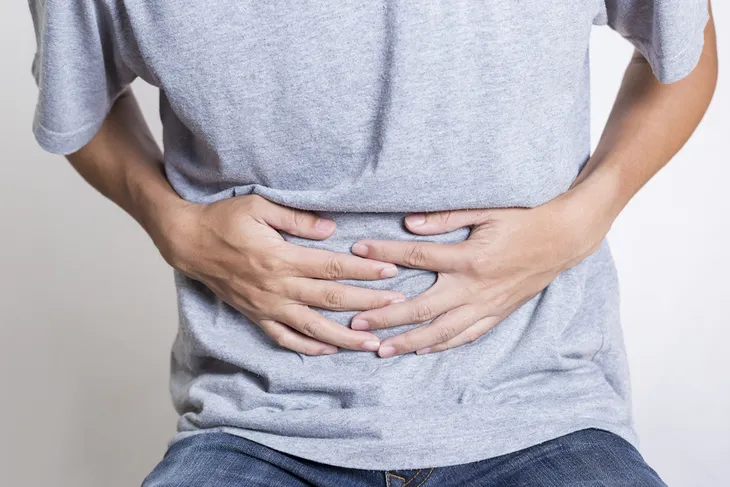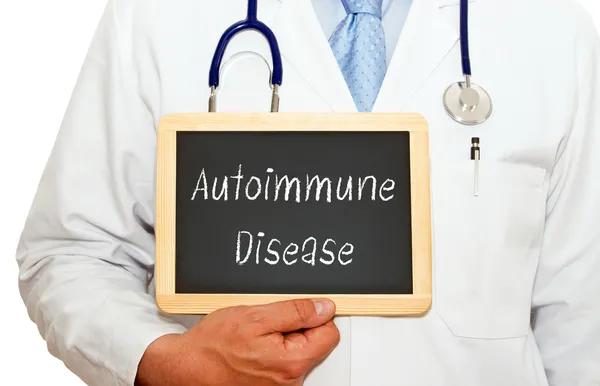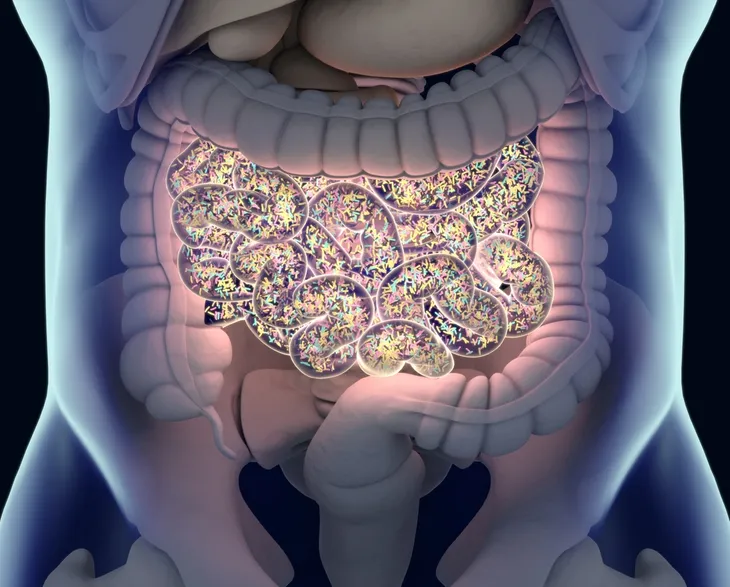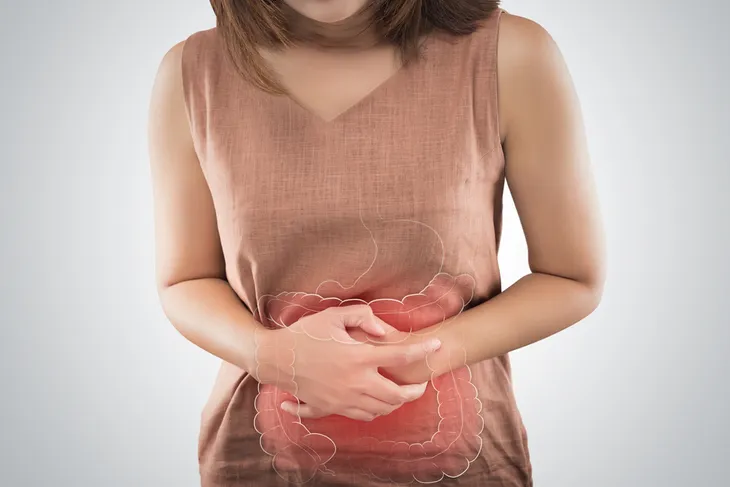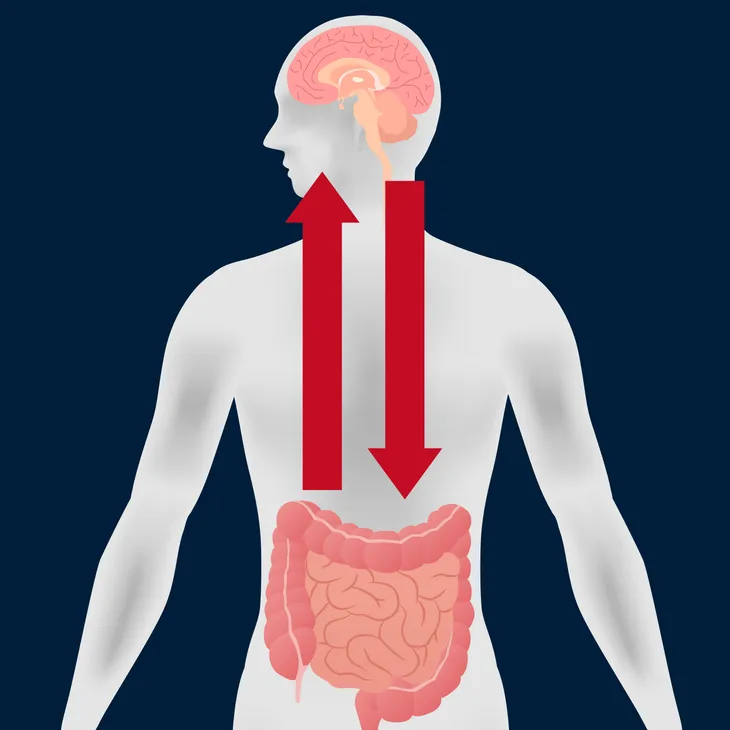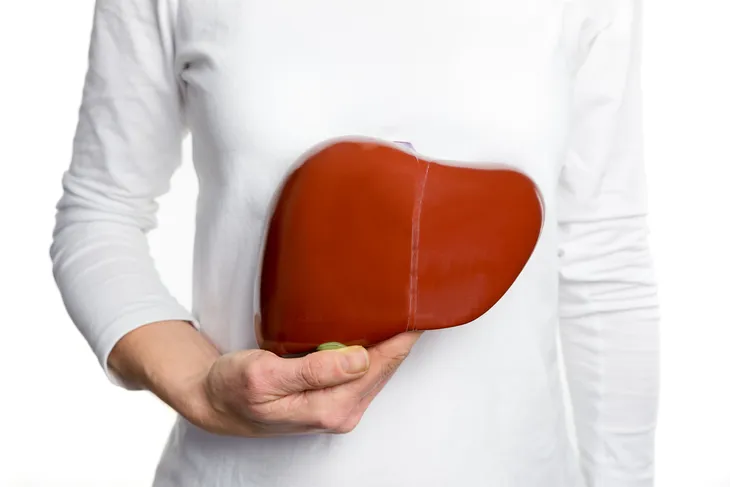It turns out your “gut feelings” are real things, as your gut health can affect not only your physical health but your mental well-being as well. Your “gut” is the collective of your gut bacteria, viruses, and fungi that makes up your gut microbiome, explains Healthline.com.
The source says your gut microbe “begins to affect your body the moment you are born,” and that without one, survival would be difficult. It also changes with age, and your diet can have an impact on it. Here are 12 ways a healthy (or unhealthy) gut can affect your body and brain…
Mood Maker
Fitness magazine confirms the link between your brain and your body, and notes the happiness of your gut microbiome can affect your overall mood. “The brain influences the digestive tract and vice versa,” it explains.
The source also says “new” research shows the digestive system – namely the esophagus, stomach, small intestine, and colon – “have a big say in how our minds and bodies function and how happy we feel.” What’s more, up to 95-percent of the serotonin (a neurotransmitter connected to mood) is produced by cells in the lining of the gut, allowing the brain and gut to constantly be in communication, adds the source.
The Immunity Link
Health24.com clearly states, “your gut is the cornerstone of your immune system.” So it’s no surprise that what we put into our bodies can affect how well our immune system is functioning.
The source says up to 80-percent of your “immune tissue” is located inside the digestive tract. Because the intestines act as a protective layer between the bloodstream and the “external world,” it has to have an effective immune system to battle pathogens from food in order to ward off illness, it adds.
Autoimmune Disease Risk?
Fitness magazine suggests that an unhealthy gut from a bad diet and overuse of antibiotics due to a “stressed-out lifestyle” may be giving rise to food allergies and autoimmune diseases such as Crohn’s disease and rheumatoid arthritis.
“When there is a loss of balance in the different types of intestinal bacteria, they send signals to our immune system to overreact and become inflamed, leading to disease,” it notes. The prescription? Increase the number of “good” bacteria in your gut by consuming probiotics from food and supplements, it suggests.
Traced to Metabolic Disorders
WebMD explains your gut plays a role in your metabolism; that is, how your body burns calories (to put it simply). “They determine things like how many calories you get from food and what kinds of nutrients you draw from it,” it says of gut bacteria.
That being said, too much bacteria in the gut can turn fiber into fatty acids, which can lead to fatty deposits in the liver and eventually metabolic syndrome, it adds. This syndrome can be a precursor to type 2 diabetes, heart disease, and obesity, it adds.
Possible Bowel Inflammation
WebMD also says that inflammatory bowel disease, namely Crohn’s disease and ulcerative colitis, could be linked to a low level of anti-inflammatory gut bacteria, although “the exact connection is still unclear.”
As we mentioned earlier, it could be blamed on an autoimmune response – the source says certain bacteria may trigger an immune response that attacks the intestines, and in turn “set the stage” for diseases that affect the bowels.
Aids Against Allergies
WebMD also has an article that says a healthy gut can help you resist allergies (and asthma). Allergies may actually start in your gut, due to an imbalance of good bacteria and fungi, it adds. The source says research has shown the rate of allergies and asthma are on the rise – and it might actually be from being too sanitary, which can “deprive people of defenses needed to prevent asthma and allergies.”
A test cited by WebMD shows mice that drank water heavy in antibiotics had an increase of “fungal inhabitants,” with higher levels of Candida yeast being of note. “Candida, like many other yeast, secrete molecules that affect the immune system’s response to allergens,” it adds. When the mice were then exposed to allergens, they had responses similar to asthma, it says. (Another group of mice with healthy guts did not respond negatively to the same mold).
Prevents Restful Sleep
Perhaps you think what’s going through your head is the only thing keeping you up at night – think again. Bustle.com says that certain foods that cause poor digestion consumed too close to bedtime can disrupt your rest.
The source says to stay away from spicy foods in particular when bedtime is approaching, as they can cause indigestion and leave you staring at the ceiling. The same source has a separate article that lists a number of foods that can impact your shut-eye – including fried food.
Dictates Energy Levels
MindBodyGreen.com explains that “healing your gut” can help your energy levels increase. Interestingly, it says without good bacteria to break down foods and extract nutrients, even eating a fresh salad may be nothing more than “a beautiful digestive cleanser.”
It adds that certain probiotic bacteria produces its own B-vitamins, which are linked to feeling more energetic. “Friendly flora” in your gut also helps regulate blood sugar, so you don’t crash and burn from your lunch at 2 p.m. on a workday – during a meeting.
Stressed Brain, Stressed Stomach
We’ve already established that our minds and gut are connected, and they feel what each other are feeling. Bustle.com notes when you’re experiencing stress, your stomach can also become stressed, leading to pain, gas, and all the rest.
It can also slow down your metabolism and affect digestion, it adds. This creates a “cycle of stress and poor digestion” that can further compromise health and happiness over time – the source suggests trying some yoga or other relaxation strategies (such as meditation) to better cope with stress.
Liver Link
MedicalNewsToday.com says that “certain gut biomarkers” can be early indicators of liver disease, more specifically non-alcoholic fatty liver disease (NAFLD).
The source says NAFLD is tough to diagnose in early stages, and may “remain hidden” until it’s more advanced and can cause liver damage. However, it notes there have been “exciting connections” discovered between the gut microbiome, carbohydrate metabolism and fatty liver – which may help the medical community understand why some obese individuals don’t develop a fatty liver.
It Can Make You Irregular
If you’ve noticed your body is having more trouble expelling stool than usual, there’s a good chance it could be the result of your gut health. Bustle.com says food that isn’t being properly digested can cause bloating, discomfort, “as well as difficulties with making regular bowel movements.”
However, consuming more dietary fiber can help “get things moving” so you become more regular, it adds. Think of foods such as whole wheat bread, corn, apples, beans, and bran cereals, adds the source. There’s also “prebiotic fiber,” which can help good bacteria in your gut thrive.
Concentrate On The Benefits
Along those lines of mind-body connection, MindBodyGreen.com points out your “brain fog” could be from an unhealthy gut environment. The source calls your gut “your second brain,” and notes the good bacteria communicate with your brain via the vagus nerve that runs from your midsection to your head.
Along with helping to improve your mood, having a healthy gut can send “mind-boosting chemicals” that also stimulate your memory and cognitive function, adds the source. Alternately, too many bad bacteria in your gut can cause poor concentration, and allow toxins to more easily pass into your blood, it adds.


